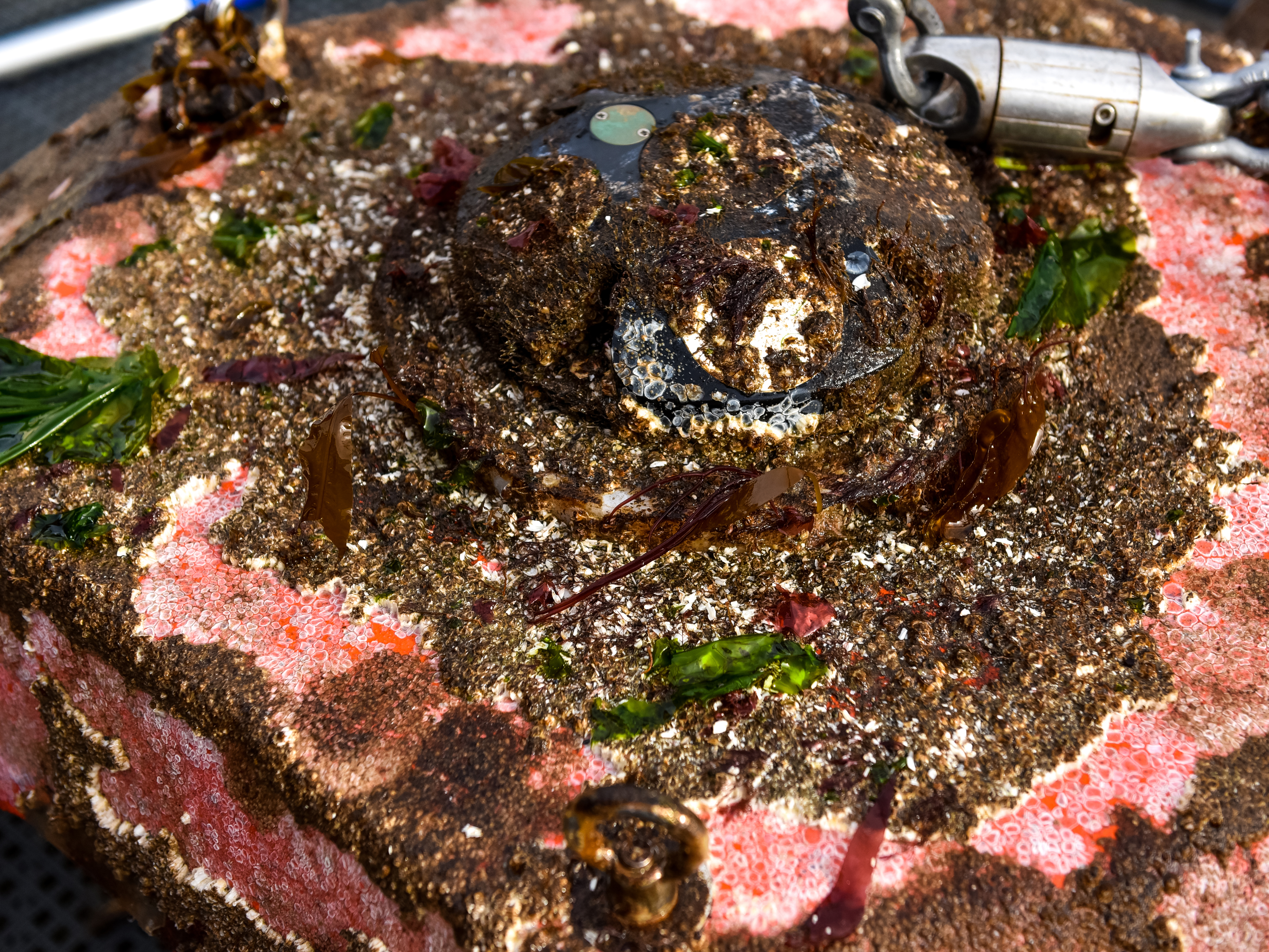
Testing for Marine Energy
Testing for Marine Energy
Reducing environmental risks
Reducing environmental risks
Marine energy is a promising, novel renewable resource which harnesses power from waves, tides, large rivers, and ocean currents.
Before the industry fully adopts this resource, marine energy must be tested and evaluated. Key factors that need to be assessed include technical performance, costs, and environmental effects.
Testing at PNNL-Sequim

Scientists at PNNL-Sequim, work to lower the environmental risks associated with marine energy. In order to improve understanding, scientists conduct research related to underwater noise, electromagnetic field and marine organism interaction, benthic habitat mapping techniques, and the environmental impacts of devices on marine animals. Researchers apply a variety of sophisticated instruments to understand these effects, including acoustic doppler current profilers, Light Detection and Ranging Sensors, and PNNL’s Juvenile Salmon Acoustic Telemetry System.
PNNL-Sequim scientists oversee and implement the Triton Initiative, which is sponsored by the U.S. Department of Energy (DOE)’s Water Power Technologies Office. Triton supports the development, advancement, and integration of environmental monitoring technologies. The Triton Field Trials (TFit) was developed to advance knowledge around the impact of marine energy devices by improving environmental monitoring procedures and methodologies, as identified by the PNNL-led Ocean Energy System-Environmental Initiative. TFit researchers work to advance environmental monitoring by developing monitoring guidelines and preferred instrumentation for measuring the most significant environmental stressors associated with marine energy devices. The initiative seeks to standardize data collection used to better understand the environmental effects driving environmental permitting processing.
In addition to Triton, PNNL is involved in DOE’s Testing & Expertise for Marine Energy (TEAMER) program. TEAMER connects the capabilities and expertise of national laboratories and universities to developers of marine energy technologies. The program is designed to provide access to test centers and testing capabilities, and to support a range of tests including numerical modeling, laboratory, and in-water testing.
PNNL’s research and technical expertise support the development of marine energy in pursuit of flexible energy assets for the future.

